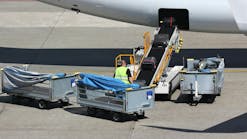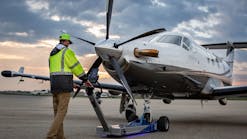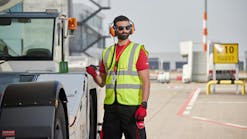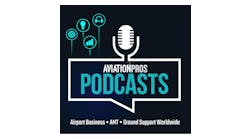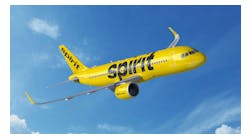CHICAGO (AP) -- Numerous U.S. airlines kicked off the summer with a round of fare increases, citing the latest surge in fuel costs for the need to charge up to 3 percent more per trip.
If it sticks, the move means customers of the largest carriers could pay an additional $20 or more for domestic and international flights as the busiest travel season of the year gears up.
The increases began Tuesday night when American Airlines and United Airlines, the industry's No. 1 and 2 carriers, posted higher fares effective immediately. They continued Wednesday when several others matched them or made similar price boosts.
United, a unit of UAL Corp., said its fare increase averages 3 percent on most domestic and international flights, with sale fares and some specialty fares unaffected.
''All the carriers are squeezed in a vise between lower yields and higher fuel costs,'' United CEO Glenn Tilton told a U.S. House transportation subcommittee Wednesday while testifying about airline pensions. ''Fuel is approaching $60 a barrel. Not surprisingly, predictions that the U.S. airline industry would return to profitability have not come true.''
John Tague, executive vice president for marketing, sales and revenue, said the Elk Grove Village, Ill.-based airline is confident its customers will understand the need for higher fares.
American increased most U.S. fares by $5 one-way and $10 round-trip at about the same time, although it did not raise the highest walk-up fares as United did, according to spokesman Tim Wagner. American's average one-way fare is about $150 so the increase also works out to about 3 percent, Wagner said.
''A dollar increase in the cost of a barrel of oil costs us $80 million a year,'' he said. ''This is a way to try to recover some of that added expense. We still have historically low air fares. Consumers are still getting a good deal.''
Following the industry leaders on Wednesday, Delta Air Lines Inc. raised its fares $5 one-way and $10 round-trip on all flights, US Airways Group Inc. increased some first-class fares in the Caribbean and Alaska Air Group Inc. boosted prices by $3 to $5 to per one-way trip.
Northwest Airlines Corp. said it was studying the fare increases.
Southwest Airlines Inc., the discount-fare leader, did not match the higher prices. Spokeswoman Brandy King said the carrier had no plans to implement a fare increase.
The nation's airlines have been losing billions of dollars as high oil prices make fuel expensive and competition from discounters keeps fares low. U.S. airlines spent an estimated 40 percent more on jet fuel last year than in 2003, or $6 billion overall, and prices have worsened since then.
Oil prices fell for a second straight day Wednesday but remain above $58 a barrel, up some 50 percent in the past year.
